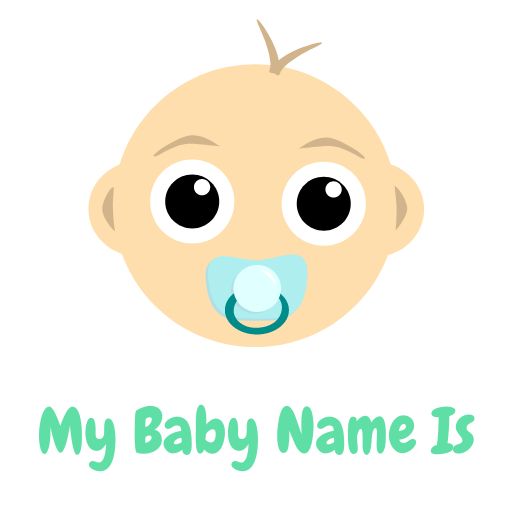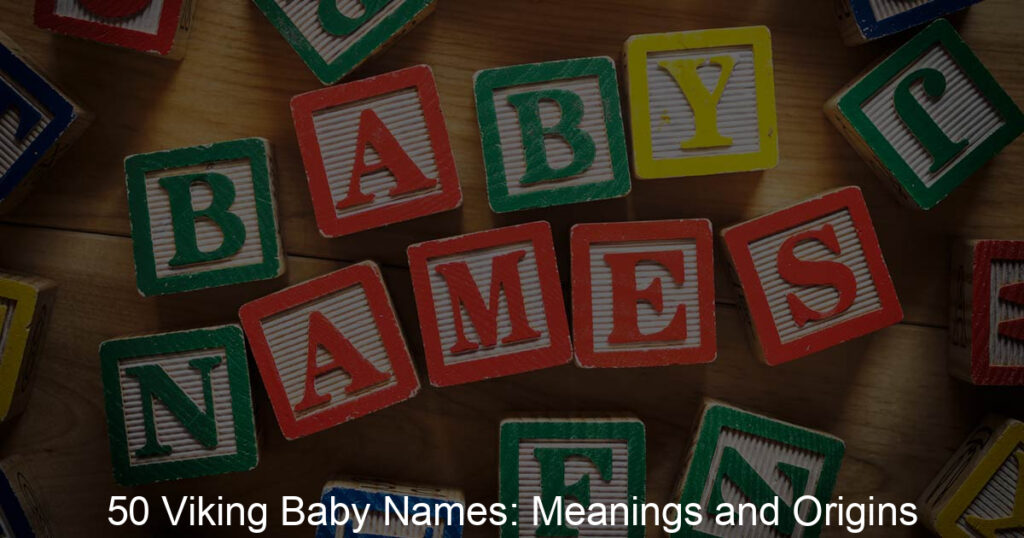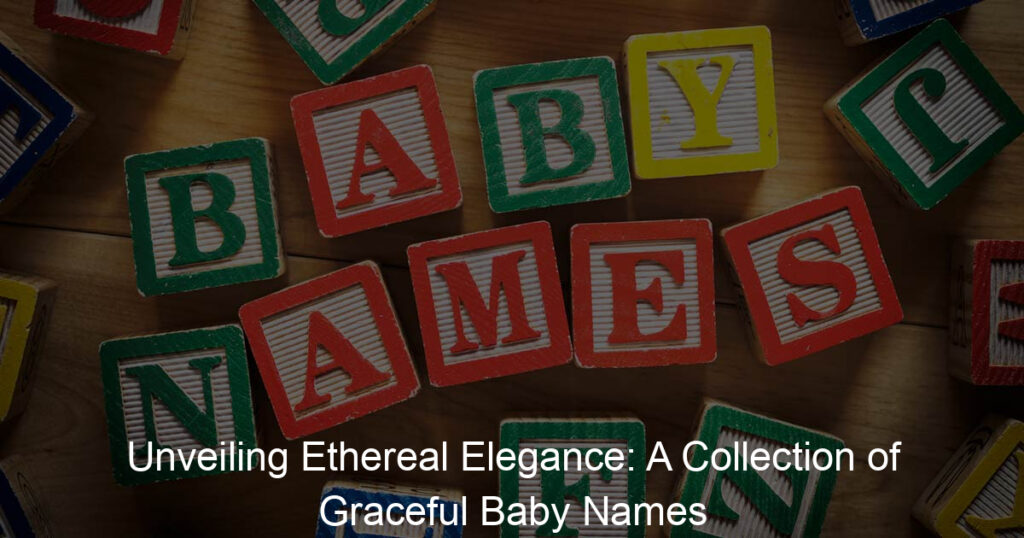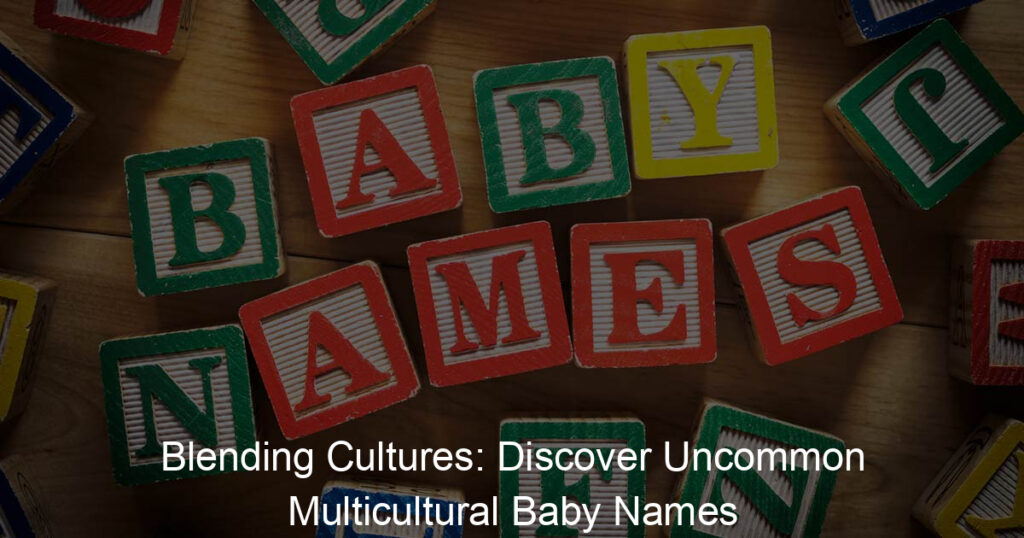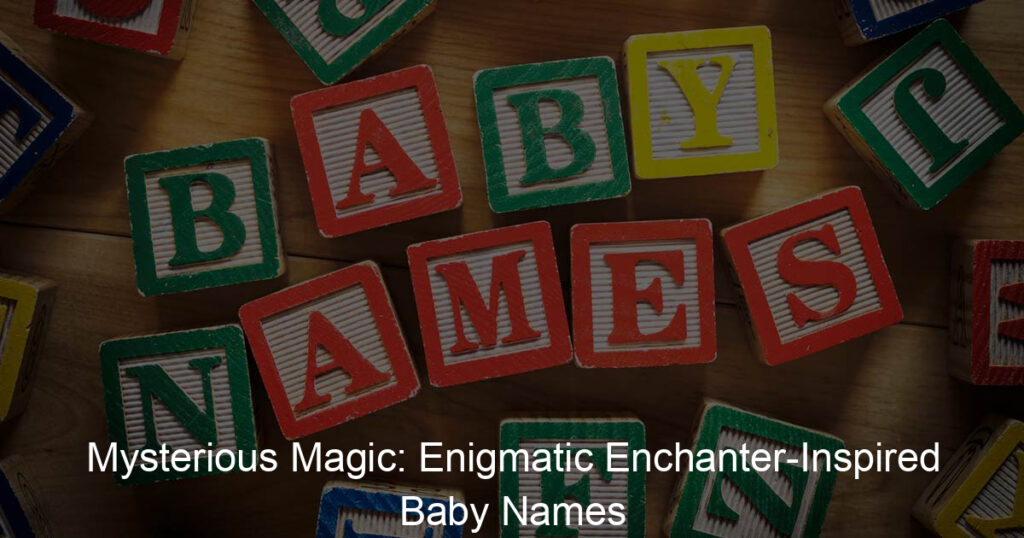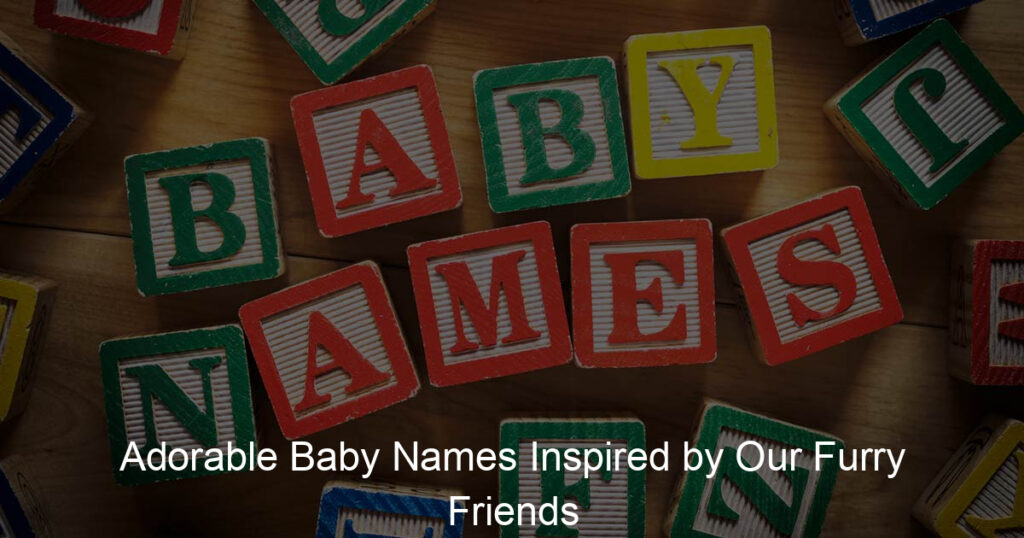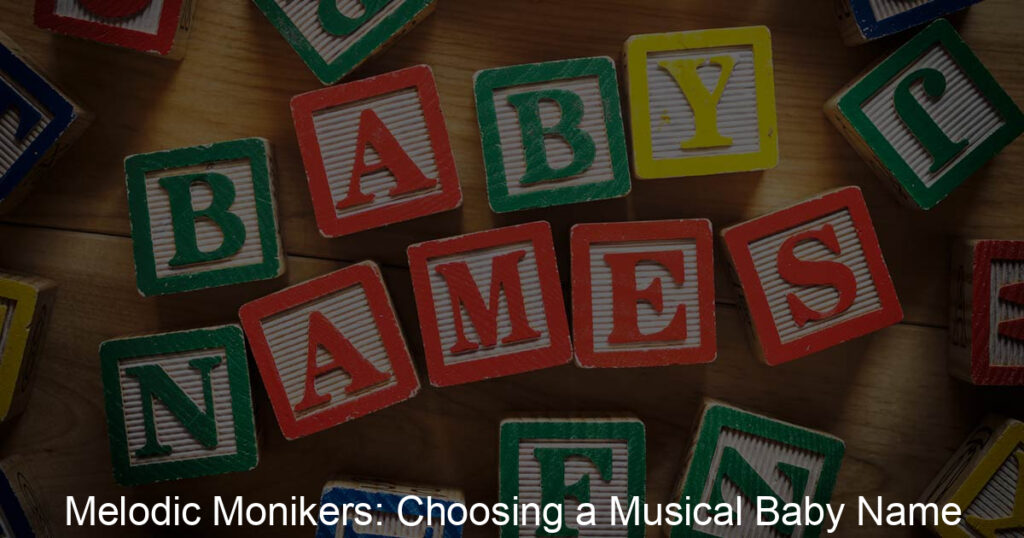Are you expecting a baby soon and want to give them a unique name that carries an exciting history? Look no further than traditional Viking names! Vikings were known for their seafaring exploits, settling in different parts of Europe during the medieval period.
It should come as no surprise that these proud warriors also had plenty of inspiring names to choose from! In this article, we’ll explore 50 meaningful Viking baby names (with meanings and origins) so you can find one that perfectly fits your little bundle of joy. So what are you waiting for? Let’s dive into those powerful Viking names!
What is the coolest Viking name?
One of the coolest Viking names out there has to be Harald, which was a name used by several rulers throughout early Scandinavian history. It includes the Old Norse elements ‘har’, which means “army”, and ‘valdr’ for “leader”. This amazing combination makes it perfect for any warrior in search of battle glory, conveying strength and courage. And that’s why we can understand why this name has been used in honor of powerful Viking leaders all across Scandinavia!
What Viking name means chosen?
The name “Viking” comes from an Old Norse word meaning “chooser”. It serves as a reminder that the Vikings were brave adventurers who weren’t afraid to explore new lands and face unknown dangers.
This fearless attitude is why many people choose to honor their ancestors by taking on a Viking name, such as Björn for a brave bear-like king, Olaf for a fierce sea warrior, or Eirik for an eternal ruler of justice and mercy. Names associated with the Viking culture help keep their rich history alive even in today’s world.
What Viking names mean strong?
The Scandinavian region gave rise to the iconic Viking culture, which has left its mark on history in terms of exploration, battle tactics, and craftsmanship. One aspect of Viking history that fascinates modern audiences is their naming conventions. There are many names associated with the Viking culture, commonly beginning with ”Thor” or ”Bjorn”, meaning ”thunder” and ”bear”, respectively; these names convey a sense of strength and show admiration for natural phenomena and fierce animals.
In addition to these two examples, other vocables conveying strength, such as the practice of adding ”son” (Sonson, Danson, etc.), demonstrate a desire for power within the Nordic tribes. Overall, Viking names have held strong over time and brought us plenty of insight into the mythology underpinning this remarkable period in history.
What is a traditional Viking name?
Traditional Viking names are historically derived from Old Norse, a language that was spoken by the Vikings. These names often incorporate elements such as strength and courage, reflecting the characteristics of those brave warriors.
Many traditional Viking names are used today, such as Freya, Erik, and Leif which are most popular in Scandinavian countries. Other famous Viking names include Ivar, Thor, and Olav. While many of these classic monikers continue to be popular in modern times, there is a trend among new parents towards unique and less common alternatives to bestow an identity that stands out from the crowd.
Who is the most powerful Viking?
When it comes to the most powerful Viking, opinions vary. It’s hard to determine which Viking deserves that title because all of them have done great things in their lifetime. But one stands above all the rest: Ragnar Lodbrok, or “Lodbrok the Viking.” He was a legendary warrior and medieval king who ruled around 860-870 AD. As a seasoned leader, he was audacious and ruthless, making him very influential amongst his fellow Vikings.
He also had an array of strategies for raiding lands for spoils, making him an unstoppable force that was feared by many throughout Northern Europe. Ragnar is said to be the father of many generations of other powerful Vikings and today serves as a symbol of power and high esteem in modern-day Viking culture.
What is the Viking name for eternal?
The Norse have always been a people known for their love of mythology, and they gave names to everything they encountered in life, including what might be considered eternal. About eternity, the Vikings referred to this concept as “aldarangr”. The direct translation in English is “all-lasting” or “all-enduring,” showing the depth of reverence that the Norse had for that which never ceases.
Interestingly enough, some experts confirm that aldarangr has become an accepted Nordic term being used by many throughout Scandinavia. As such, it can be said that not only do the Norse have extensive cultural belief systems but also language constructions that are still relevant today!
Who is the most legendary Viking?
Ragnar Lodbrok, also known as Ragnar Sigurdsson, was undoubtedly the most legendary Viking in history. He lived during the 9th century and is remembered for his boldness, determination, and skill in battle. According to Norse mythology, Ragnar was responsible for many major raids against France and England and was reputedly part of a royal dynasty of Swedish kings.
As such, he embodied all the characteristics that were important to Vikings: he was brave in fighting and strategic in war; he had an insatiable thirst and great courage; but most importantly he had a strong sense of justice and fairness. No matter what side of history you’re on Ragnar Lodbrok stands out as a powerful figure from the Viking era who still captures our attention today.
Who is the most fearless Viking?
Out of all the fearless Vikings throughout history, Ragnar Lothbrok stands out as one of the most audacious. Ragnar was a warrior and a king who took part in raids throughout Europe and eventually led an invasion of England with great success.
He was willing to take incredible risks to gain his objectives, such as making unlikely alliances with other powerful rulers or going up against seemingly undefeatable armies. He pushed boundaries rather than playing it safe and often surprised his foes by being able to outmaneuver them. This kind of determination and courage made him a famous Viking who continues to be respected today.
What are Viking names for wolves?
If you’ve ever wanted to give your beloved wolf pup a Viking-inspired name, then look no further! A great place to start is by including Old Norse or Icelandic references, such as Fjalarr, Svartormr, and many other epic monikers of ancient legends. You may also want to reference famous authors and stories by calling your pup Freki and Gere after being inspired by the works of JRR Tolkien.
Or you could even draw inspiration from Norse literature such as the Volsunga saga with names like Hrafhildr, Gjafir, or Grani. Either way, giving your four-legged companion a Viking-themed name can be both cool and meaningful at the same time.
What is a Viking princess called?
Viking princesses were held in high regard and respected throughout society. They often took on important roles within the community and could even be leading leaders or rulers. A Viking princess is known as a “Drotning” which can be translated to mean queen.
Despite their power, these princesses would often take up domestic responsibilities such as baking bread and tend to the children. Most importantly, a quest for knowledge was emphasized so the princesses were versed in many topics of conversation – far beyond the scope of common women during the Viking age.
What is the Viking name for love?
Love has always been an integral part of human culture and society, but the way we express it has changed dramatically over time. The ancient Norsemen of Scandinavia had their special word for love – ‘aldr’, which can be translated as kindness, protection, or care. To them, aldr was more than just romantic love – it applied equally to familial connections and caring relationships with friends.
This is why Norse mythology includes stories about aldr-based camaraderie that ties brave warriors together to face fierce adversaries, such as dragons and giants. Ultimately, there’s something very beautiful in the Viking notion of aldr that speaks to all kinds of relationships and demonstrates the power that love can have on our lives.
Summary
Our exploration of the amazing and powerful Viking baby names has come to an end! We learned so much about the Viking’s culture and language, as well as with their many daring warriors. Remember, although it can be fun to choose one of these strong-sounding names for your little one, there are other considerations when selecting a name including pronunciation, meaning, and cultural significance.
So take some time to research baby names that you find exciting and meaningful. After all, your little one deserves a unique baby name – one that will make him or her stand out and feel extra special! Best of luck in finding the perfect Viking baby name and namaste!
